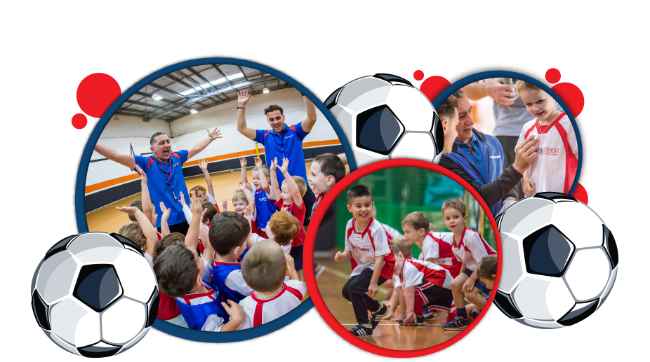After School Soccer: A Parent's Guide to Ensuring Your Child's Safety
Enrolling
your child in an after-school soccer program is a fantastic way to promote
their physical health, social skills, and love for the game. However, ensuring
your child's safety during these activities is of utmost importance. In this
guide, we'll explore key considerations and practical tips to guarantee a safe
and secure after-school soccer experience for your young athlete.
1. Research the Program:
Thoroughly
research the after-school soccer program before enrolling your child. Look for
reviews, testimonials, and information about the coaching staff's
qualifications and experience.
2. Check Accreditation and
Certifications:
Ensure
that the program is accredited and that coaches hold relevant certifications in
child safety, CPR, and first aid. A commitment to safety standards is crucial.
3. Communication Protocols:
Understand
the program's communication protocols. A well-established system for conveying
important information, emergency procedures, and regular updates is indicative
of an organized and safety-conscious environment.
4. Supervision and
Staff-to-Child Ratio:
Inquire
about the supervision practices and staff-to-child ratio during soccer
activities. A lower ratio ensures that each child receives adequate attention
and care.
5. Emergency Plans:
Familiarize
yourself with the program's emergency plans. This includes evacuation
procedures, first aid availability, and the communication process in case of
unforeseen circumstances.
6. Secure Facilities:
Ensure
that the soccer program takes place in secure facilities. The playing area
should be well-maintained, and the equipment should meet safety standards.
7. Medical Information and
Allergies:
Provide
the program with any relevant medical information about your child, including
allergies or pre-existing conditions. Ensure that coaches are aware of and
trained to handle specific medical needs.
8. Permission Slips and
Consent Forms:
Complete
all necessary permission slips and consent forms. These documents are crucial
for ensuring that your child can participate in activities and receive prompt
medical attention if required.
9. Safe Transportation
Practices:
If
the program involves transportation, ensure that the vehicles are properly
maintained, and drivers are licensed and experienced. Confirm that seat belts
are available and used during transport.
10. Observation
Opportunities:
Check
if the program allows parents to observe sessions. Being present occasionally
gives you firsthand insight into the safety measures in place and your child's
overall experience.
11. Encourage Open
Communication:
Foster
open communication with your child about their experiences in the Kids Soccer Eastern Suburbs program. Encourage them to share any
concerns or discomfort, and reassure them that their safety is a top priority.
12. Background Checks for
Staff:
Inquire
about the background check processes for coaching staff and any other personnel
involved with the program. This step helps ensure the safety and well-being of
all participating children.
While
After School Care Soccer programs offer numerous benefits for
your child, safety should always be the top priority. By being proactive,
staying informed, and maintaining open communication, you can ensure that your
young athlete enjoys a secure and enriching soccer experience after school.
Remember, a safe environment not only promotes physical well-being but also
contributes to your child's overall enjoyment and growth in the sport.



Comments
Post a Comment